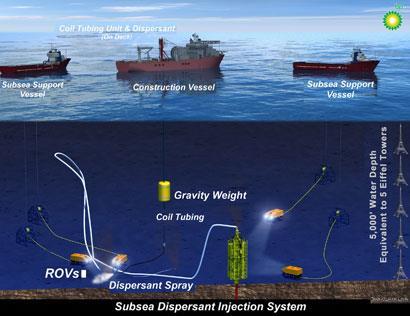
Photo by Gerrit Vyn, on assignment in 2010 documenting the Deepwater Horizon oil spill damage to birds and habitat for the Cornell Lab of Ornithology’s conservation media program.

Scenes from 2010: An oil-covered barrier island in Louisiana’s Barataria Bay.Scenes from 2010: the Deepwater Horizon oil rig on fire.(A recent study concluded that invisible yet toxic plumes of oil actually spread over a much larger area.) Some 1,300 miles of beach, from northwestern Florida to eastern Texas, were fouled by oil, much of which wound up trapped in sediments on the ocean floor and coastlines, stirred up by storms for years thereafter. The Deepwater Horizon blowout, which gushed for 87 days and wasn’t declared fully sealed until September 2010, remains the most calamitous oil spill in American history-nearly 134 million gallons of oil, the equivalent (in terms of volume) to 12 Exxon Valdez-level catastrophes, creating a slick that eventually covered 15,300 square miles.

As many as 1 million birds-and countless fish, marine invertebrates, sea turtles, marine mammals, and much more-perished in the disaster. Oil from the April 20, 2010, explosion of the Deepwater Horizon drilling rig and subsequent well blowout washed across the Isles Dernieres and many of the other waterbird colonies Martinez now studies, fouling beaches and marshes from southern Louisiana to western Florida. Ten years ago, the scene on Raccoon Island, and across the northern Gulf of Mexico, was very different. “As I’m walking through, I flush all the Laughing Gulls, I’m getting bombed with Laughing Gull poop, and on the dune areas of the island, you have your skimmers and terns dive-bombing you as you try to walk through and create the least amount of disturbance possible.” There are 10,000 Brown Pelicans nesting on it, give or take,” she says. “It’s pretty much covered from east to west in pelican nests. Photo by Amy Shutt.īut for Martinez, who walks the length of this remote island and four others off the Louisiana coast for her research on pelican nesting success, Raccoon is something special. Thanks to habitat restoration efforts, the island’s pelican colony has rebounded from the Deepwater Horizon oil spill.

University of Louisiana at Lafayette PhD researcher Juita Martinez scans for banded pelicans for research on Queen Bess Island in June 2020.


 0 kommentar(er)
0 kommentar(er)
